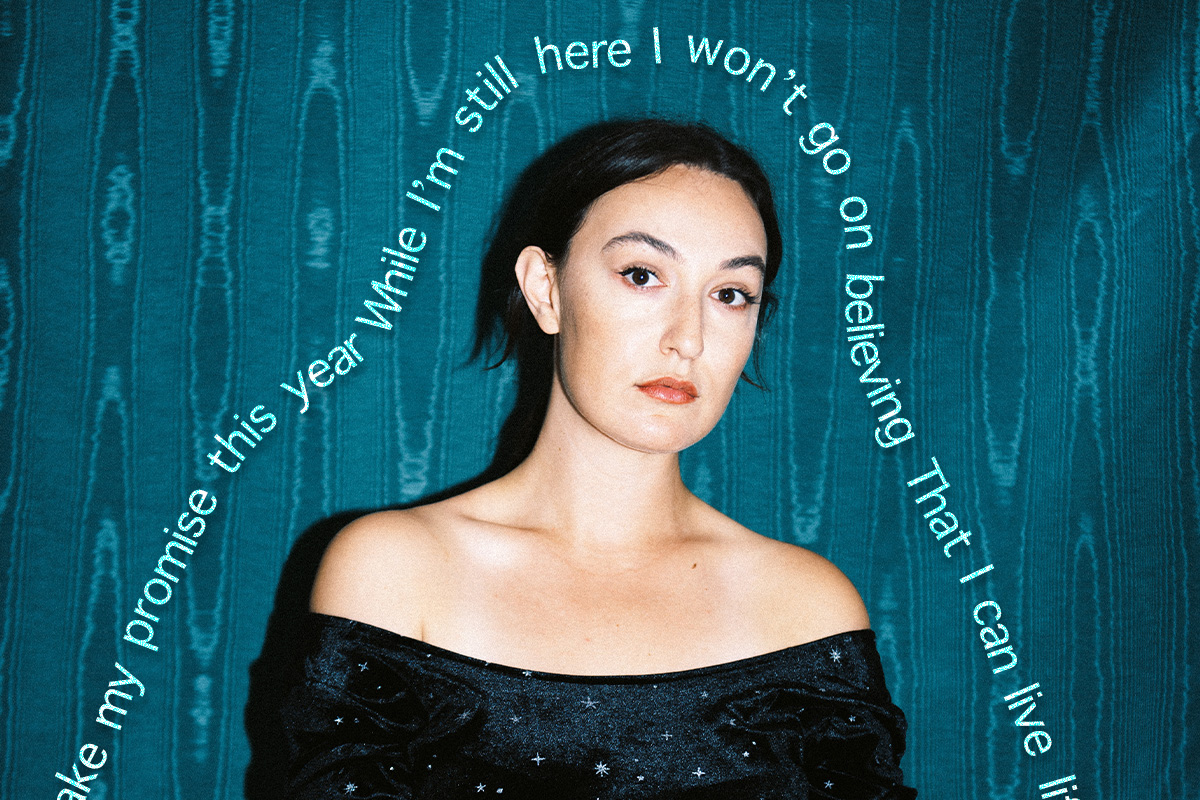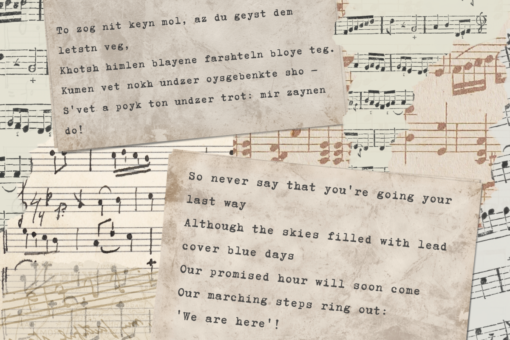When I think of music for the High Holidays, my mind tends to go to the liturgical: a chazzan (or Barbra Streisand) belting Avinu Malkeinu or a cellist performing Kol Nidre.
Zoe Sky Jordan is changing that.
Last spring, the Canadian Jewish singer released her latest album “Selfish,” which contains a song titled “Rosh Hashanah.” The final track of the album, “Rosh Hashanah” is a feminist alt-pop ballad which explores the Jewish imperative to take stock of one’s life and precipitate change during The Days of Awe. This theme is carried melodically, with backing vocals that pierce the foreground of the song, shofar-like; primarily, though, it shines through in the lyrics. “Hallelujah, my love / Another year has come and passed,” Zoe begins, later reflecting, “As the new year fades to day / Can I make good on my word / To carry all this joy and pain / And be the things I say.”
Zoe chatted with Hey Alma via email about her song “Rosh Hashanah,” how Debbie Friedman inspired it and why (until recently) she avoided listening to Haim.
This conversation has been lightly edited and condensed.
Why did you name this song “Rosh Hashanah”?
I felt that I wanted to be overt in my Judaism for the first time. I didn’t do this because I suddenly felt more religious, I just reached a point where I wanted to air out and be real about things in my background that make me uncomfortable. One of those things is having successful musician parents [Marc Jordan and Amy Sky], which is the first thing I say on this album (“Selfish”) and another is growing up in a wealthy, Conservative Jewish neighborhood in Toronto (also where Drake went to high school *brag*). Even though it’s a community I rebelled against and that my family didn’t fit into as artists, it’s still part of my history. It’s not an especially cool origin story but I’m willing to embrace it.
I intentionally moved away from the default setting Jewish lifestyle most people I grew up with are living. My song “Rosh Hashanah” is about reckoning with who you’ve been and making promises to yourself. I wrote it after the summer of 2020, just before my 30th birthday and Rosh Hashanah. In that time I just needed to sit with the discomfort of all of the blessings and the disappointments of my life and I wanted to be open about it. I also wanted to acknowledge how Rosh Hashanah is such a positive spiritual check in for me every year. I always look forward to the High Holidays when I get to be with my extended family after summers apart, set goals around my birthday or the start of a school year as well as get a three-month head start on all those suckers who don’t start reflecting on their shit until late December!
Now that Rosh Hashanah is coming up, how do you feel going into this new year compared to when you wrote the song?
I’m glad I have the song as a timestamp and a check-in. I think that’s what prayers are, little aspirations and guard rails to bump up against daily or yearly. After living in Nashville before the pandemic, I decided not to go back after, which was partially because I wanted to be around people who were more like me or who I want to be, and writing this album “Selfish” was part of finding out who “me” actually ACTUALLY is.
Did any Rosh Hashanah or Yom Kippur liturgy influence the music?
Not intentionally — I come from a pretty secular background, and I’m not all that familiar with the liturgy. However, my extended family is really into singing the Debbie Friedman version of Shehechiyanu. You’re supposed to say the Shehechiyanu every time you do something for the first time, including starting off the new year. It’s a prayer of gratitude for being alive and bringing us to this moment, which feels like the ultimate declaration of being present. The chorus of “Rosh Hashanah” echoes that sentiment: “Take my promise this year / While I’m still here / I won’t go on believing / That I can live life only sleeping.” I see Rosh Hashanah, the holiday, as an opportunity to re-dedicate myself to being present in my life, and that’s something I wanted to capture in the song. I didn’t consider Shehechiyanu while I was writing it, but I think it is kind of ingrained in me and came through anyway.
Who are your Jewish musical influences?
In the same spirit in which I tried to separate myself from the trappings of my Jewish high school experience I actively avoided listening to the band Haim until a few months ago because I felt like or was projecting that they had this very confident Jewish-summer-camp-counselor energy which made me afraid!! I think maybe I’m also intimidated by sisters? There’s more to unpack there. I did end up getting into their album “Women in Music Pt. III” and it is one of my most played albums at the moment. Thanks Haim!
Tell me about your Jewish identity and background.
My family is secular, my dad is very non-practicing although his dad was a cantor in Montreal. My mom is one of six siblings who are all varying degrees of more observant than my mom, dad, brother and I but we spent a lot of time together growing up. We had Shabbat at my Grandma Sandy’s every week which was such an important foundation for me in feeling really close to my family. I’m the oldest of 16 cousins! I married a non-Jew while we were living in Nashville which was interesting, because if you want to be Jewish in Nashville you really have to seek out your community. My husband Liam looked into the conversion process and it was fun getting to restart my relationship with religion in a place where there was no default community. Everything felt really intentional and I learned some stuff I didn’t know. I had never felt more Jewish than when we lived in Nashville. I think something about the open-ended way I ask questions is very Jewish and that’s a big part of my songwriting.
Is Rosh Hashanah your favorite Jewish holiday?
You know what, I think it is! Hard to beat Passover but Rosh is up there!
Any upcoming/future projects?
I’m working on a handful of songs that (at the time I’m writing this) are going to be the most stripped back stuff I’ve ever put out. They contain some songs that I’ve been playing live and on Tiktok like “Girlfriends”and a few others. They’ll continue digging the identity of female relationships.



